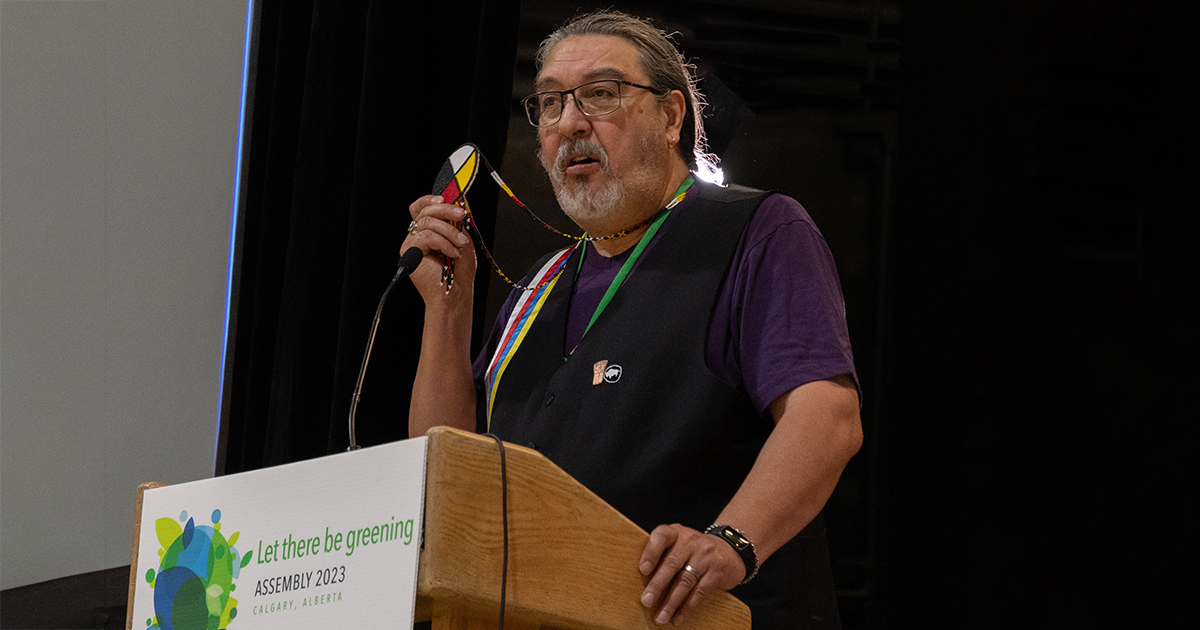The Anglican Church of Canada and the Evangelical Lutheran Church in Canada met today in Assembly, to reflect on the work of building right relations with Indigenous peoples on all efforts. Included in this discussion was engagement around a new tool designed to facilitate reflection and discussion in parishes and congregations.
The discussion kicked off with remarks from National Indigenous Anglican Archbishop Christopher Harper, who shared his thoughts of how Indigenous and non-Indigenous reconciliation can serve as a central framework for work on a wide range of social and ecological justice priorities.
“There are so many justice issues that we need to acknowledge. So many justice issues we need to recognize that are before each and every one of us,” said Archbishop Harper, who also spoke of how small steps can make a big difference—referring t0 how bringing a water bottle to Assembly, or wearing an orange shirt on Canada Day collectively, can be impactful.
“We are one in this world,” he said. “All nations. All peoples. And we need to embrace each other. Celebrate with each other. And stand up for each other. And walk with each other. And support each other. We are in this together. And we need to learn that we need to walk together just a little bit better.”
The Rev. Paul Gehrs and Dr. Ryan Weston introduced the “Parish Engagement Resource for Social and Ecological Justice”. The resource (available as a PDF) seeks to support discernment and action for social and ecological justice in local faith communities, parishes, and congregations. It is an invitation for faith communities to prayerfully consider God’s call to engage in God’s mission to love and heal the world. This tool goes home with Assembly delegates and is available online.
Exercises in the Parish Engagement Resource include:
- Encountering the Biblical text that inspired the theme for Assembly 2023: Let there be greening.
- Seeking justice and reflecting on community.
- Discerned priorities for Anglicans and Lutherans working together.
- First steps for engagement: including possible actions, a list of partners engaged in this work, a Biblical text, reflection questions, and a prayer.
- Additional discernment tools.
- Acknowledging the ongoing prayer, worship and spiritual care practices in local faith communities that contribute to the journey toward healing, justice, and peace.



